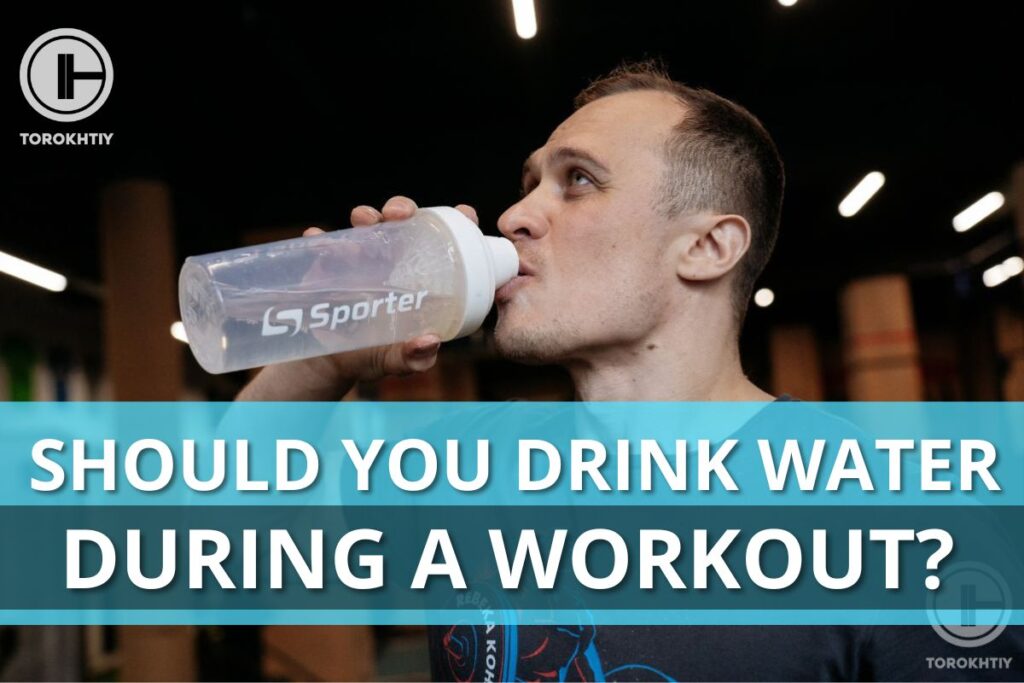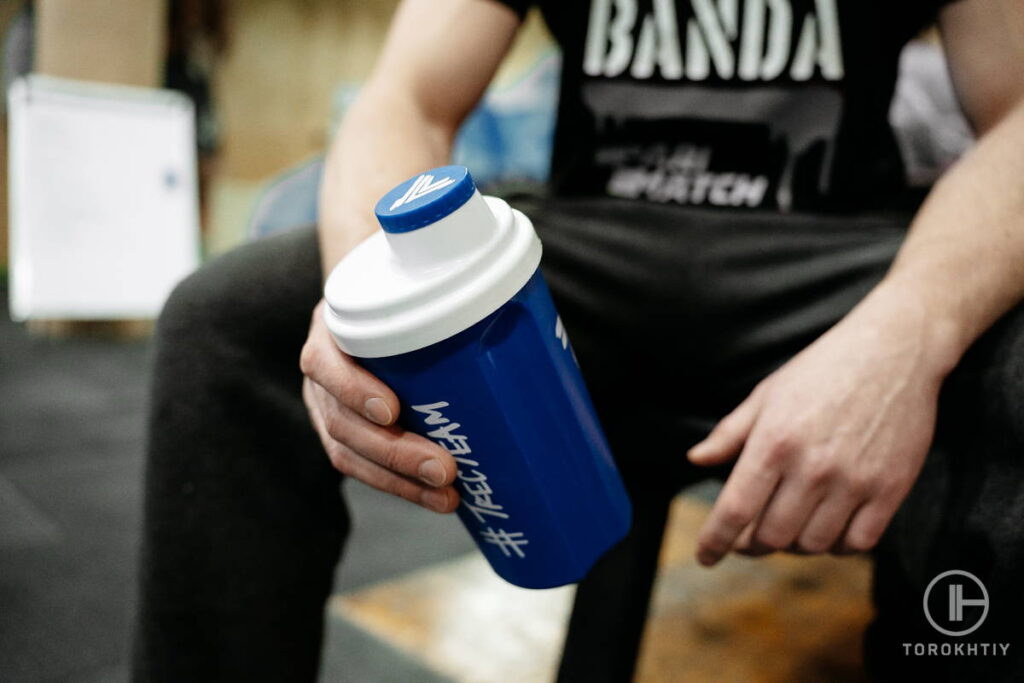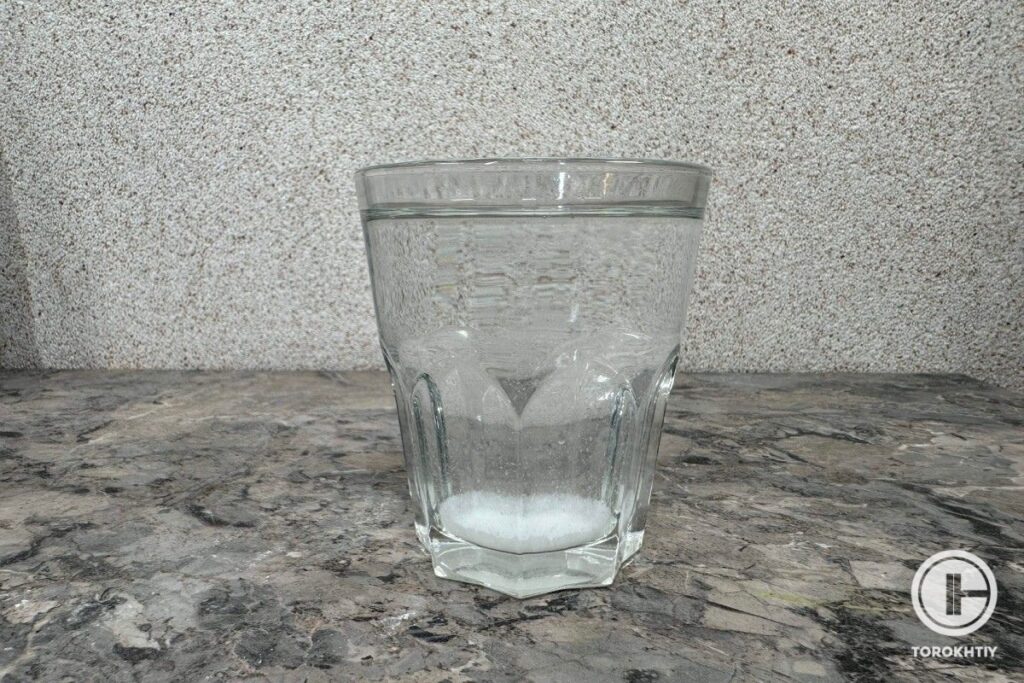Should You Drink Water During a Workout?
Author:
Unlock your full potential by engaging with our experts and community! Have questions about your fitness journey or looking for expert advice on weightlifting techniques? Don’t hesitate — leave a comment below and Sergii Putsov will provide a personalized answer and insights to help you reach your goals.
Torokhtiy is reader-supported. Some links are affiliate links, and we may earn a commission at no extra cost to you. See our disclosure page for details.

To drink or not drink while exercising? From time to time I am asked this question, and I will be frank – this is one of the simplest questions to which I give an answer without a doubt – be sure to drink! In this article, I’ll explain why drinking is important and how to maintain a water discipline before, during, and after your sessions.
Why is it so important to drink a lot?
Water is the most important nutrient for life, without which we can live only a few days. Everyone needs to maintain fluid balance in the body. This means that the amount of water we consume must match the amount of water we lose throughout the day.
Water leaves our body in different ways – primarily with urine, but we lose a lot of fluid during hard workouts – with sweat. That is why it is especially important for athletes to monitor the water balance.
Hydration status greatly affects physical performance and well-being during exercise. Here are some important facts about the importance of hydration for strength athletes:
You may like it:
- Water regulates body temperature and acts as a lubricant for our joints;
Loss of fluid equal to 2% of body mass is sufficient to cause a detectable decrease in performance (that’s a 1.4 kg loss in a 70 kg athlete). Dehydration of greater than 2% loss of body weight increases the risk of nausea, vomiting, diarrhoea, and other gastro-intestinal problems during exercise.
- During training or competition in conditions of dehydration, we get more tired, coordination worsens, and it seems to us that more effort is required to perform the usual work.

How much should you drink?
The daily fluid requirement is approximately 30-40 ml per 1 kg of human body weight, and this is no longer news for active sport people. But the real needs of each person are influenced by gender, body size, intensity of physical activity and ambient temperature. Therefore, 30-40 ml per 1 kg is only a rough guideline, which can be guided by. For an average 90-kg man, this is about 2.7-3.5 liters of fluid per day.
It’s a common misconception, that liquid includes not only plain water, but also other drinks – tea, coffee, milk, juices, sports drinks and even soups. We also get about 20% of our fluid needs from solid foods – especially fruits and vegetables. You need to keep this in mind and not forcefully pour 3 liters of clean water into yourself per day.
There is a very simple method of assessing whether you are drinking enough fluids – this is the color and volume of urine. Ideally, there should be a lot of urine and it should be almost clear or pale straw in color – like lemonade. This shade indicates optimal hydration. And this is one of the reasons why it is very important to get 1-2 good servings of fluids in the morning – in order to restore normal hydration levels after a night period – when we are not drinking for a long time.
Another important indicator is the feeling of thirst. When we are thirsty, it is a sure sign that we need to replenish our fluid reserves and get something to drink. But forcibly pouring water into yourself is not worth it.

How to maintain a hydration regimen?
To prevent dehydration, athletes should drink before, during, and after each workout.
Pre-exercise hydration.
The best option is to start your workout in a state of normal or slightly excessive hydration. This is better than starting a workout in a light dehydrated state.
Experts from the American College of Sports Medicine recommend that an athlete should aim to consume 5-10 ml of fluid per 1 kg of bodyweight 2-4 hours before training. If your urine is limited or if you haven’t urinated in several hours, that too is an indication that you’re not drinking enough fluids.
If you exercise in the morning, drinking ritual in the morning a few hours before exercise is especially important for your wellness and physical performance. The challenge is to go to workout when the shade of urine is light straw or almost transparent!
During exercise hydration.
If you start your workout in a state of normal or mild overhydration, then for most people it is enough to drink 90-180 ml of water every 20 minutes of training. Remember, drinking fluid during exercise is necessary to replace fluids lost in sweat.
Post exercise hydration.
Loss of fluid with sweat should be replenished in a ratio of 1:1 and slightly more. You can weigh yourself before training, and then repeat the weighing after training and look at the difference in weight. Your weight change during exercise reflects your total fluid loss; i.e. the difference between your sweat losses and fluid intake. Remember that weight loss during exercise is primarily water loss (not fat loss), and needs to be replaced soon after finishing exercise.
For example, if you weighed 85 kg before training, and after training – 84.7 kg – immediately after training you need to drink 300 ml of water to make up for the loss of 300 g of weight with sweat.
In general, to maintain fluid balance, you need to focus on the feeling of thirst (but not during exercise), the shade of urine and well-being. Adjust the amount of fluid consumed depending on these indicators. You don’t need to use any complicated protocols, it will only distract. But having a hydration plan is a very nice bonus. And remember, you need to follow a hydration plan not only on your workout days, but also on your rest days!
You might be interested in:
Why Trust Us?
With over 20 years in Olympic weightlifting, strength training, nutrition coaching, and general fitness our team does its best to provide the audience with ultimate support and meet the needs and requirements of advanced athletes and professional lifters, as well as people who strive to open new opportunities and develop their physical capabilities with us.
By trusting the recommendations of our certified experts in coaching, nutrition, and sports training programming, as well as scientific consultants, and physiotherapists, we provide you with thorough, well-considered, and scientifically proven content. All the information given in the articles concerning workout programming, separate exercises, and athletic performance, in general, is based on verified data.
The product testing process is described in more detail here.
Author: Sergii Putsov
Head of Sport Science, PhD
Best Results: Snatch – 165 kg,
C&J – 200 kg
Sergii Putsov, Ph.D., is a former professional weightlifter and National team member, achieving multiple medals in the 94 kg weight category at national competitions. With a Master’s degree in “Olympic & Professional Sport Training” and a Sport Science Ph.D. from the International Olympic Academy, Greece, Sergii now leads as the Head of Sport Science. He specializes in designing training programs, writing insightful blog articles, providing live commentary at international weightlifting events, and conducting educational seminars worldwide alongside Olympic weightlifting expert Oleksiy Torokhtiy.




Still have questions after reading our article? Unlock your full potential by engaging with our experts and community! Don’t hesitate — leave a comment below and Sergii Putsov will provide a personalized answer and insights to help you reach your goals.